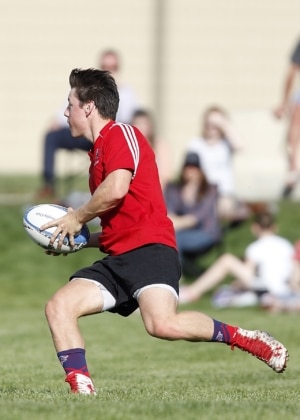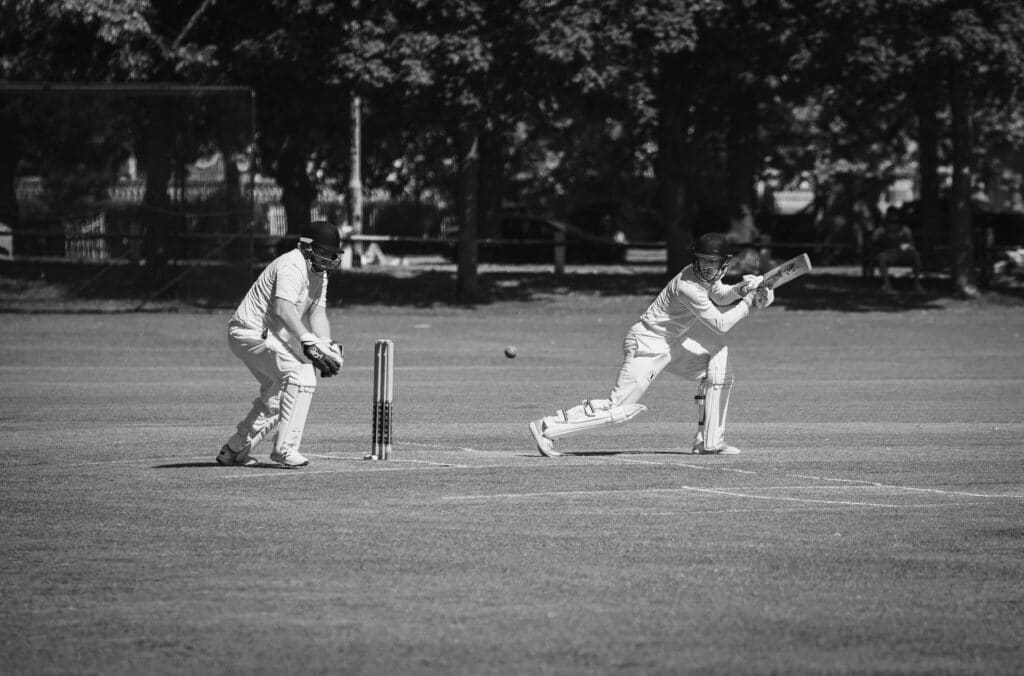Hamstring strains
What we’ll cover
Hamstring strains
Hamstring strains are a common injury affecting the posterior thigh. Strains can vary from mild to a severe tear of the muscle. As re-injury and re-occurrence is high, be sure to see our physiotherapists today. Call us on (03) 9571 688 or book online.
Hamstring strains commonly occur following an acute incident or gradually over time in which the hamstring is overstretched. Strains commonly occur during activities that involve high bursts of speed or explosive movements. Strains can also occur from over-reaching whilst bending, kicking or leaning forward.
What are the hamstrings?
The hamstrings are a collection of three muscles at the back of the thigh. These muscles attach from around the buttock region to below the knee. When the hamstrings contract, these muscles bend the knee and assist to move the hip backwards. However, the hamstring also plays an important role to slow the rate at which you swing your leg through whilst kicking or running.
How are hamstring strains diagnosed?
Thorough assessment from your physiotherapist will be able to diagnose your hamstring strain. Your physiotherapist will begin by taking a detailed history of your injury. The majority of hamstring strains can usually be pinpointed to a specific incident. However, some strains can gradually occur over time through overuse or fatigue.
Physical examination signs can include pain with contraction of the hamstring, reduced flexibility, or tenderness and pain on palpation of the hamstring. Following examination, your physiotherapy will diagnose the severity of your strain. Hamstring strains can be defined as Grade I, II, III.
Imaging (ultrasound or MRI), although not necessary, can be utilised.
What are the symptoms of a hamstring strain?
Hamstring strain symptoms vary depending on the severity of the strain. Mild hamstring strains can feel like a dull ache or stiffness. Severe hamstring strains can result in sharp pain and difficulty with walking.
Grade I Hamstring symptoms:
- Usually presents as tightness of the hamstring.
- Can usually walk without issues.
- Difficulty running at full speed.
- May have a specific incident but often unsure.
- Often minimal swelling or bruising.
Grade II Hamstring symptoms:
- Difficulty walking.
- Usually follows a specific incident.
- A limp may be present.
- Acute and local pain in the hamstring with movement.
- Significant difficulty or unable to run.
- Moderate swelling or bruising.
Grade III Hamstring symptoms:
- Occurs following a definitive and specific incident.
- Usually swelling and bruising within the first 48 hours following the incident.
- Difficulty weight bearing and often crutches are required in the short term.
Treatment for hamstring strains.
Depending on severity and stage of rehabilitation, physiotherapy treatment can differ. Research indicates that re-injury and re-occurrence of strains is very common in poor managed hamstring strains.
During the acute stages, physiotherapy focuses on reducing the pain and restoring normal movement and flexibility. Current research indicates early and safe movement (i.e walking and running) following a strain. Your physiotherapist will guide you safely back to activity and sport as quickly and as safely as possible. Importantly, be mindful that acute or sharp pain frequently settles within a few days following initial assessment and treatment.
Treatment techniques may include soft tissue work, joint mobilisations or dry needling. Importantly, your physiotherapist will guide you through a comprehensive rehabilitation program to ensure optimal healing and reduce the likelihood of re-injury. Depending on the nature of your injury, treatment may also assess and treat factors that may cause increased susceptibility to hamstring strains. This can include but is not limited to reduced core strength, reduced back flexibility, poor running technique or decreased hip flexibility.
If you have strained your hamstring, no matter how minor, be sure to see our expert team of physiotherapists to get you back playing as quickly as possible. Call us today or book online.














